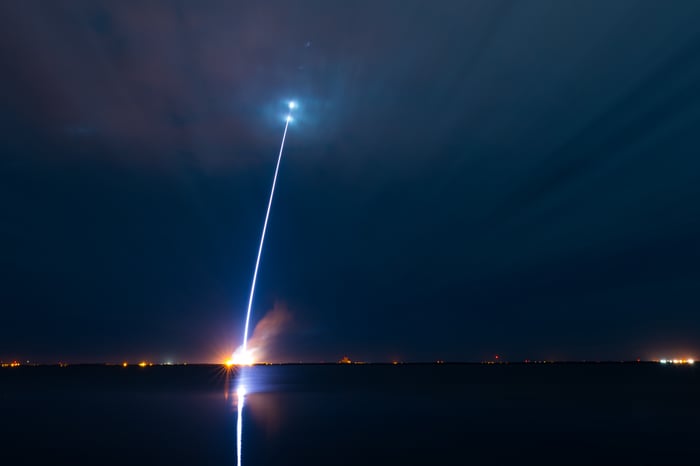Blue Origin Sets Its Sights Higher with New Glenn Launch
Jeff Bezos has achieved a significant milestone in space exploration by launching an orbital-class rocket.
From Feuds to Achievements: Blue Origin’s Journey
Ten years ago, Bezos sparked a rivalry with SpaceX’s Elon Musk when his Blue Origin company launched the New Shepard rocket into suborbital space. While SpaceX focused on landing its Falcon 9 rockets on barges at sea, Bezos celebrated Blue Origin’s landing. Musk emphasized that without the capability to reach orbit, Blue Origin’s feat was limited in comparison.
New Glenn safely reached its intended orbit during today’s NG-1 mission, accomplishing our primary objective. The second stage is in its final orbit following two successful burns of the BE-3U engines. The Blue Ring Pathfinder is receiving data and performing well.
We lost the… pic.twitter.com/MmDlCb6AVj
— Blue Origin (@blueorigin) January 16, 2025
The Successful New Glenn Launch
In the early hours of January 16, Blue Origin successfully launched its first New Glenn orbital-class rocket. The impressive 322-foot rocket reached orbit on its first attempt, deploying a prototype Blue Ring space tug. However, the rocket’s first stage missed its landing target and was lost at sea. This was not entirely unexpected; it took SpaceX five attempts to master at-sea landings. Blue Origin is likely to overcome these challenges in time.
Competing Titans: SpaceX and Blue Origin
Blue Origin’s New Glenn can carry 45 metric tons to Low Earth Orbit (LEO) at a launch cost of around $70 million. In contrast, SpaceX’s Falcon 9 can lift a maximum of 22 metric tons in non-reusable configuration, with its launch cost published at $69.8 million. This puts Blue Origin in direct competition, especially with established players like Lockheed Martin (NYSE: LMT) and Boeing (NYSE: BA). Their ULA joint venture charges about $110 million per launch, while Airbus (OTC: EADSY) Arianespace’s price is set at $77 million.
Unless SpaceX adjusts its pricing or operationalizes its Starship rocket, it may struggle to compete with Blue Origin’s more hefty payload capacity for a similar price.

Image source: Blue Origin.
Blue Origin’s Role in Amazon’s Ambitious Project Kuiper
Blue Origin’s recent success also puts pressure on Musk, as the company can now launch Kuipersat internet satellites for Amazon (NASDAQ: AMZN). Amazon aims to establish its satellite internet service to compete with SpaceX’s Starlink. Time is of the essence; Amazon must deploy 1,600 satellites by July 2026 or risk losing its FCC license.
This aggressive timeline requires launching nearly 90 satellites each month for 18 months. Amazon has partnered with multiple launch providers, including 92 contracts total, but will likely prefer to work primarily with Blue Origin, especially given its association with Bezos who founded both companies.
Blue Origin’s capability to launch 75 Kuipersats at once positions them as a critical asset to help Amazon achieve its goals on schedule, with 10 planned New Glenn launches this year.
Investing in the Future
Certainly, this may be a prime opportunity for investors looking to capitalize on burgeoning companies in a rapidly evolving industry. For those feeling like they missed the chance to invest in successful stocks, it might be wise to consider newly emerging opportunities.
Learn more »
The views and opinions expressed herein are the views and opinions of the author and do not necessarily reflect those of Nasdaq, Inc.

